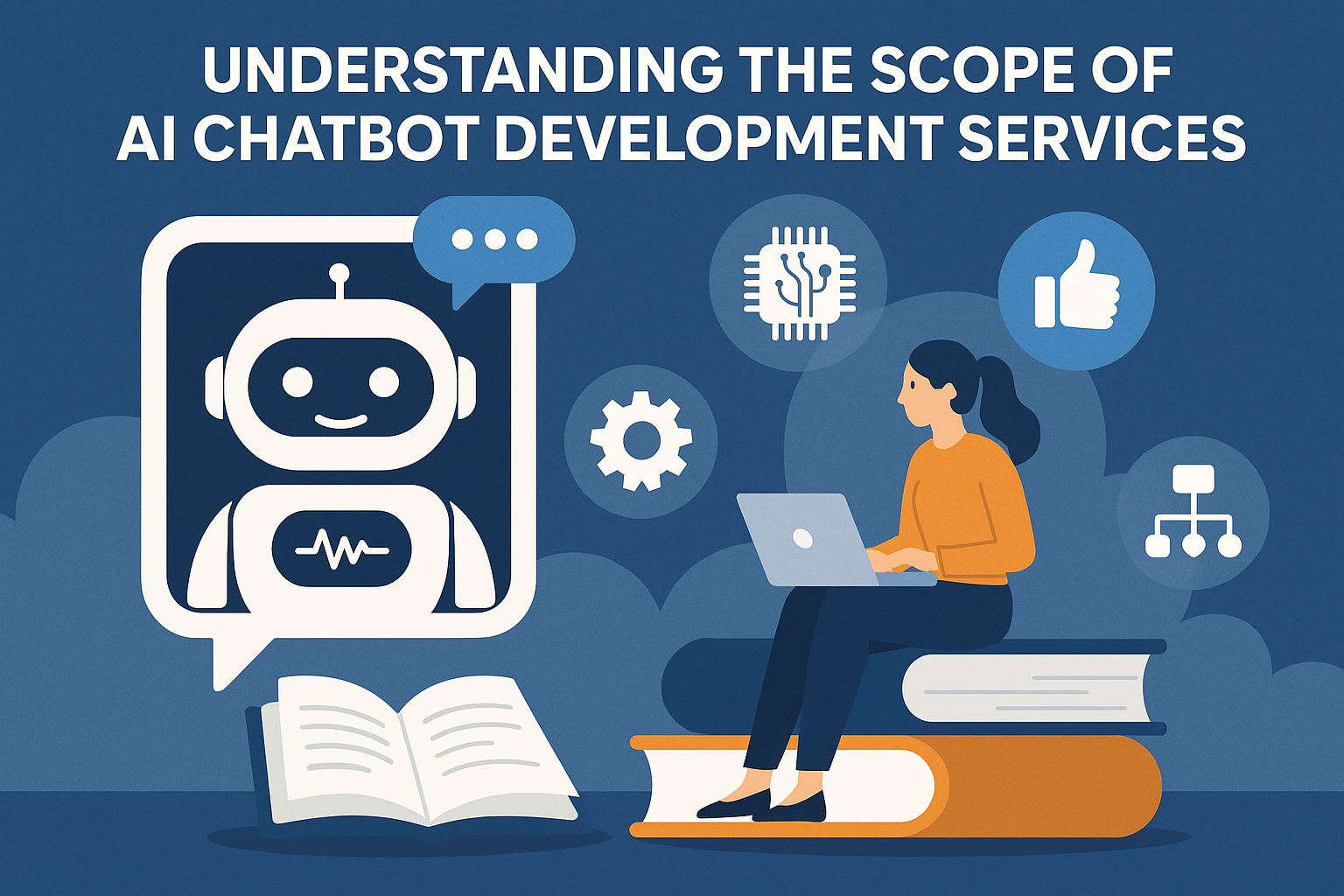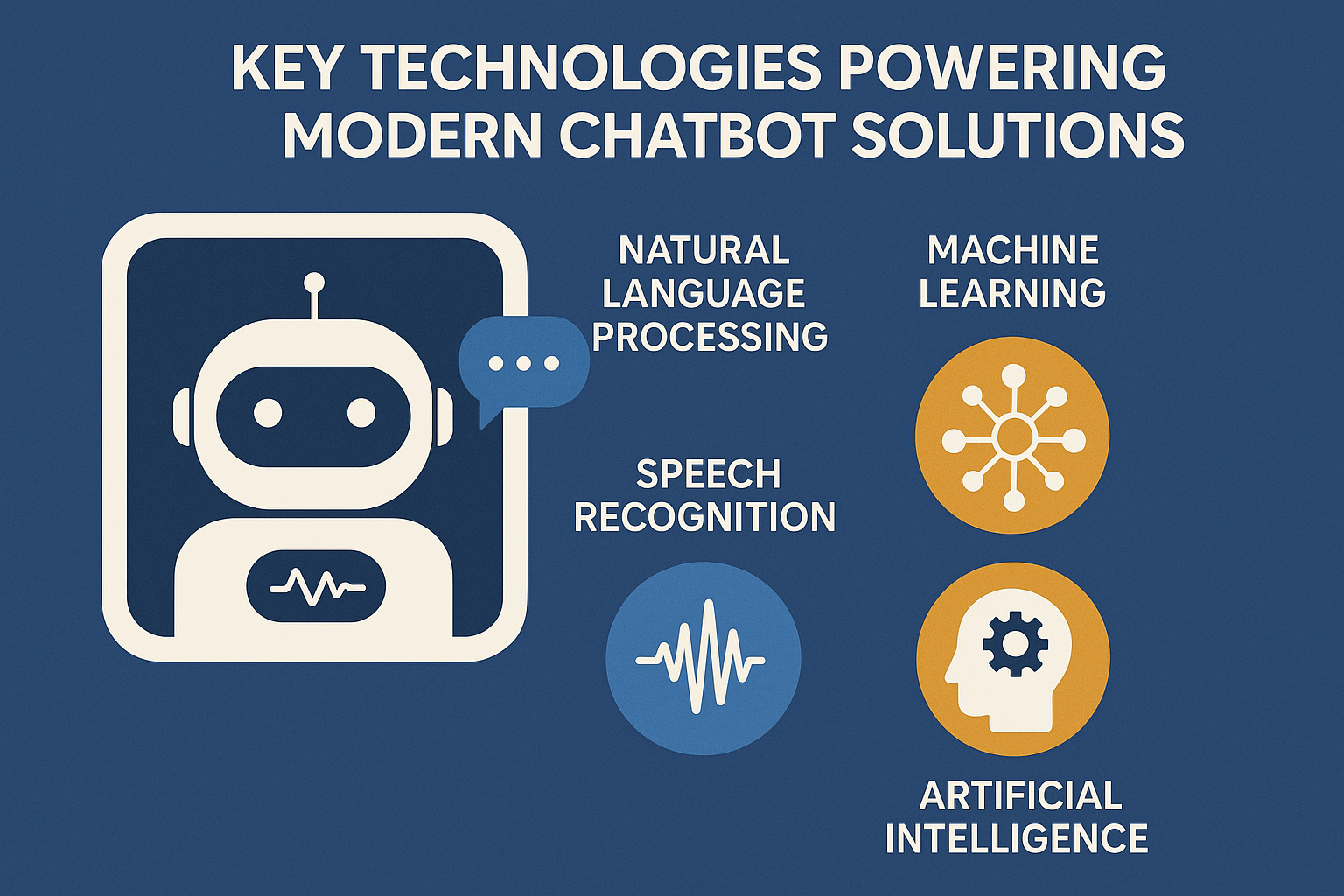AI Chatbot Development Services by GrayCyan
ai chatbot development services that transform customer engagement instantly
Ai chatbot development services aren’t just a trend—they’re a sign of how fast the way we interact with technology is shifting. Think about it: not long ago, customers waited on hold for hours. Now, with the right AI-driven system, they can get answers in seconds. That’s not luck; it’s a whole new way of thinking about communication. The businesses that embrace this shift don’t just save time—they build deeper, faster, more human-like connections. And if there’s one thing I’ve learned, it’s that waiting for old systems to “catch up” will leave you behind. This is the moment to build smarter, adapt quickly, and reimagine what’s possible with AI.
Understanding the scope of ai chatbot development services
When we talk about ai chatbot development services, we’re really talking about a full ecosystem of tools, design, and deployment strategies. These services cover everything from basic customer support bots to complex conversational AI systems that can handle nuanced discussions. At the heart of it all lies the mission: replacing outdated interaction models with smart, adaptive, and scalable solutions that don’t just respond but also learn. Businesses now expect chatbots to do more than spit out canned responses—they need contextual, relevant, and evolving interactions.

Another part of the scope is versatility. AI chatbots can be tailored for small startups aiming to automate FAQs or enterprise-level organizations managing thousands of customer inquiries per hour. Each use case demands a different level of customization, integration, and performance optimization. That’s where development services step in, bridging the gap between raw AI technology and real-world business needs.
Interestingly enough, this scope keeps growing. Industries beyond retail and tech are diving in—finance, healthcare, education, and hospitality are all using AI chatbots. The scope now touches appointment scheduling, loan approvals, medical pre-screenings, and student advising. It’s proof that AI chatbot development services are far more than “nice-to-have”; they’re becoming mission-critical tools across industries.
Key technologies powering modern chatbot solutions

Every effective chatbot runs on three pillars: natural language processing (NLP), machine learning (ML), and cloud integration. NLP allows the chatbot to understand intent and respond naturally. ML helps it learn and improve with every interaction. Cloud platforms and APIs make the chatbot scalable, secure, and seamlessly integrated with existing systems.
For instance, an e-commerce chatbot powered by ML can adapt over time by recommending products based on customer history. Meanwhile, NLP ensures it understands slang, typos, and colloquial queries. APIs allow it to fetch order details from a CRM or trigger a payment gateway.
Without these core technologies, chatbots remain static and robotic. With them, they evolve into intelligent virtual assistants that enhance customer engagement.
Benefits of adopting ai chatbot development services for businesses
- Cost efficiency: Reduce customer support costs by automating repetitive queries like password resets or order tracking.
- Scalability: Manage thousands of conversations simultaneously, something impossible for human-only teams.
- 24/7 availability: Global customers expect instant support, and chatbots deliver nonstop.
- Customer satisfaction: Faster responses build stronger trust and loyalty.
These benefits are why custom chatbot development has moved from a nice-to-have to a must-have in today’s competitive landscape. When businesses deploy AI chatbots correctly, they cut costs, improve response times, and build more loyal customers simultaneously.
How conversational ai improves customer experience
Conversational AI elevates chatbots beyond pre-programmed scripts. With contextual understanding and memory, conversations flow naturally. Customers don’t feel like they’re talking to a machine—they feel like they’re engaging with a smart assistant that understands intent and context.
These bots also use sentiment analysis to detect tone and emotion. If a customer sounds frustrated, the chatbot adjusts its tone or escalates to a human agent. This blend of automation and emotional intelligence creates a better customer journey.
Personalization is another game-changer. A chatbot that recalls purchase history, offers custom recommendations, and anticipates needs creates a concierge-like experience. That personalization boosts satisfaction and conversion rates.
Custom chatbot solutions for different industries
Different sectors need different chatbot functionalities. Here are some examples:
- Healthcare: Appointment scheduling, symptom triage, medication reminders, HIPAA-compliant interactions.
- Banking: Balance checks, loan applications, fraud detection with secure authentication layers.
- Education: Admissions Q&A, course guidance, student resource navigation.
- Retail & e-commerce: Personalized product recommendations, order tracking, return processing.
- Travel & hospitality: Flight bookings, hotel reservations, travel itinerary updates.
This industry-specific customization proves why one-size-fits-all chatbots don’t cut it. AI chatbot development services design solutions tuned to each sector’s regulations, challenges, and customer needs.
The role of natural language processing in chatbot performance
NLP is the secret sauce of chatbot intelligence. Without it, bots can only follow rigid scripts. With it, they interpret user intent, even when phrased casually or incorrectly. For instance, “Where’s my order?” and “Track my package pls” are understood as the same query.
Context matters too. Advanced NLP enables multi-turn conversations. If someone asks, “What’s the weather in LA?” followed by “And in San Diego?” the chatbot understands both questions are about weather, not separate topics.
Beyond that, NLP powers multilingual support, helping businesses scale globally. Pairing NLP with sentiment analysis creates chatbots that don’t just respond—they respond appropriately, adapting tone and phrasing to the situation.
Integration of ai chatbots with existing business systems
Integration is where chatbots transform from standalone tools into business assets. By connecting to CRMs like Salesforce, helpdesks like Zendesk, or ERPs, chatbots can access real-time customer data. This allows for faster, more accurate responses.
Imagine a customer asking, “Where’s my order?” With integration, the chatbot retrieves tracking data instantly. Without it, the response would be generic and frustrating. That’s why API-driven integrations are the backbone of effective deployments.
Security here is critical. Chatbots must authenticate users, encrypt sensitive information, and comply with privacy regulations like GDPR. Strong integrations paired with compliance make AI chatbot solutions enterprise-ready.
Scalability and future-proofing with ai chatbot development services
AI chatbots are inherently scalable. Whether handling 100 conversations or 10,000, they maintain consistent performance. This scalability helps small businesses appear bigger and allows enterprises to reduce overhead while improving customer service.
Future-proofing comes from designing adaptable systems. As NLP and AI models improve, chatbots can be updated without full redesigns. This ensures businesses stay competitive without constant reinvestment.
AI chatbot platforms can also expand into new functions: HR onboarding, sales qualification, or marketing automation. That adaptability is what makes development services an investment in the future, not just a short-term fix.
Challenges and limitations in ai chatbot development
Even with benefits, challenges exist:
- Data quality: Poor training data leads to inaccurate responses.
- Over-automation: Bots without human fallback frustrate customers.
- Complex queries: Bots struggle with highly technical or ambiguous questions.
- Security risks: Without encryption and compliance, sensitive data can be exposed.
These challenges highlight why strategy and partnership matter. A rushed implementation often leads to chatbot failure, while a carefully planned rollout ensures long-term success.
Best practices for selecting an ai chatbot development partner
When choosing a partner, focus on three things: expertise, transparency, and scalability. A strong partner understands your industry, explains their process clearly, and offers support after launch. Avoid anyone promising instant results without context—that’s a red flag.
Look for a vendor with proven experience in conversational AI services, integration capabilities, and compliance. The right team will guide you through planning, design, testing, deployment, and optimization.
In the end, the best chatbot isn’t just a product—it’s a partnership that evolves with your business needs.
Frequently Asked Questions (FAQs)
What are ai chatbot development services?
How much does it cost to build an AI chatbot?
Can chatbots replace human agents completely?
Which industries benefit most from AI chatbots?
What is the future of AI chatbots?
Conclusion
AI chatbot development services are more than automation—they’re a revolution in how businesses connect with customers. From scalability and cost savings to personalized experiences, they transform customer engagement at every level. While challenges exist, the right partner ensures long-term success.
If you’re considering implementing AI chatbot development services, now is the moment to take action. Share this post, drop a comment with your thoughts, or subscribe for more insights. The future of customer interaction is already here—it’s just waiting for you to build it.

